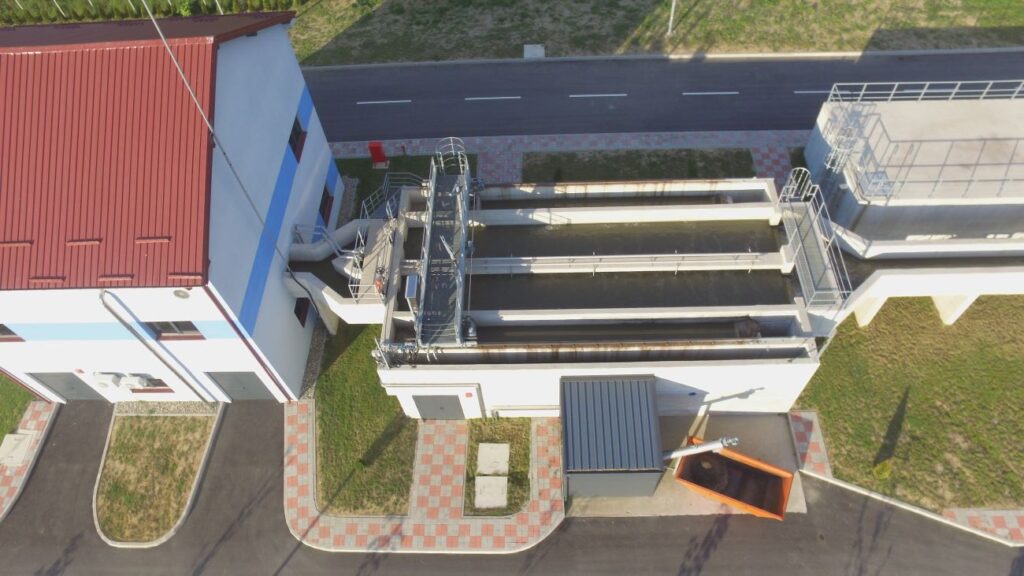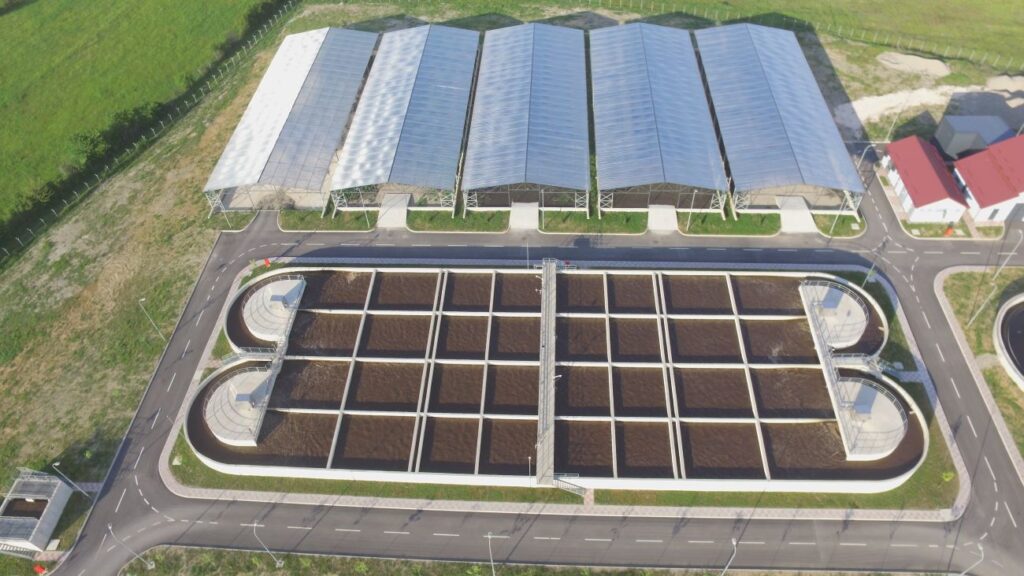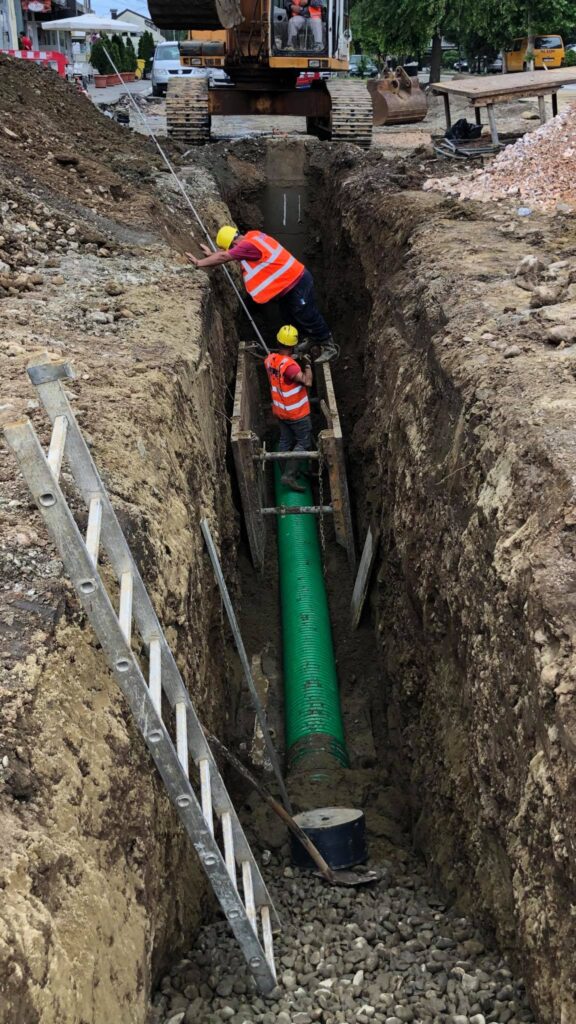Sewage Disposal in South West Kosovo - Phase III
This project was successfully implemented as part of the Development Cooperation between the Republic of Kosovo and the Federal Republic of Germany through KfW Development Bank (KfW), as well as the Swiss Confederation through the State Secretariat for Economic Affairs (SECO).
The project contract consisted of two main components. The Implementation Consultant Component (A) involved the provision of detailed design and construction supervision services for new investments. Works Contract 1 focused on the sewerage network and included activities such as CCTV inspections to identify leakages and subsequent rehabilitation, replacement or construction of main sewers, rehabilitation works within the sewerage network, disconnection of sewers from the stormwater network, and the construction of a sewer transmission line to connect to the envisaged wastewater treatment plant (WWTP), which also involved the construction of a pipe bridge. Works Contract 2 centered around the WWTP, with a capacity of 29,000 population equivalents in Stage 1 and 45,000 population equivalents in Stage 2. The WWTP components included an inlet pumping station, mechanical/primary treatment facilities, secondary treatment utilizing oxidation ditches, aerobic sludge digestion, mechanical sludge dewatering, sludge drying beds, and the supply of operation and maintenance materials.
In parallel to the Implementation Consultant Component, the Accompanying Measures Component (B) was implemented, focusing on capacity-building services targeted towards RWC Gjakova. These measures aimed to enhance the capabilities and skills of RWC Gjakova to effectively manage and maintain the implemented infrastructure.
The scope of work for this component included the preparation of a detailed design, hydraulic analysis, FIDIC Pink Book tendering, and tender evaluation for the Works Contract, covering a total length of 19 km.
Component A – Implementation Consultancy:
The implementation consultancy for Works Contract 01 focused on the sewerage system. This involved the replacement of sewer networks with diameters ranging from 300 to 800 and a total length of 18 km. Additionally, a transmission main with a diameter of 800 and a length of 1.2 km, including a river crossing, was constructed to connect to the new wastewater treatment plant (WWTP).
The scope of work for this component included the preparation of a detailed design, hydraulic analysis, FIDIC Pink Book tendering, and tender evaluation for the Works Contract, covering a total length of 19 km. It also involved the preparation of an Environmental and Social Impact Assessment (ESIA), support in obtaining construction permits and licenses, assistance in tendering and contracting processes, supervision of works for a duration of 24 months, and the management and monitoring of environmental, social, health, and safety-related measures (ESHS). Additionally, assistance during the defects notification period for a duration of 12 months was provided.
For Works Contract 02, which focused on the wastewater treatment plant, the scope of work included the preparation of a preliminary design in accordance with EU Directive 91/271/EEC and DWA-A 131E – June 2016. This was followed by FIDIC Yellow Book tendering and tender evaluation for the plant designed to accommodate 29,000 population equivalents (PE). Similar to Works Contract 01, the preparation of an ESIA, support in obtaining construction permits and licenses, assistance in tendering and contracting processes, supervision of works including a review of the contractor’s detailed design, and management and monitoring of ESHS-related measures were carried out for a duration of 24 months. Assistance during the ongoing defects notification period for 12 months was also provided.
Component B – Accompanying Measures Consultancy:
The accompanying measures consultancy focused on several areas to support the overall project. These included the adjustment and refinement of the organizational structure, business planning, establishment of service agreements and customer procedures, development of a customer service concept and setup of a customer database, procedures for maintenance of the sewerage network, preparation of designated staff for WWTP operation, tariff policy development, development of a sludge management concept, development of an industrial wastewater management concept, public relations and awareness activities, policy dialogue, and regulatory aspects. Furthermore, ongoing support for the operation of the WWTP was provided.
Through these components, the project aimed to deliver comprehensive infrastructure improvements, effective operational management, and adherence to environmental and social standards, ultimately enhancing wastewater treatment services in the region.










